July 14th, 2009 by Sally Taylor | No Comments »
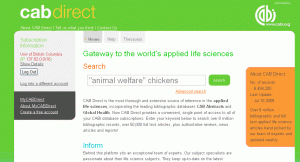
CAB Direct, a key database for agriculture, animal science, conservation, forestry, global health and nutrition has a snazzy new look. The new interface, which is available now and will replace the existing version on September 1, offers a more intuitive search experience. Features include:
- Simple and advanced search screens.
- Suggestions for spelling variations.
- The ability to refine search results by subject, year, journal, author, geographic location and language.
- Abstract snippet views at the results level.
- Links to full text articles using the View Full Text and UBC eLink icons.
- MyCABDirect, a personal account where you can set-up email alerts and RSS feeds based on saved searches.
A heads-up about RefWorks: The Direct Export feature is not available in the new interface. Instead you can download the results and save them as an .RIS file, and then Import the file into RefWorks using the .RIS filter.
For help with the new interface, please contact Sally Taylor or Katherine Miller at Woodward Library.
Posted in Botany, Dietetics/Nutrition, Environmental Health, Fisheries, Forestry, Land and Food Systems | No Comments »
June 1st, 2009 by Sally Taylor | No Comments »
During the summer, reference librarians are available Monday to Friday, 10am-4pm at Woodward Library, and 9am-5pm in the UBC hospital libraries. Please ask at the Circulation Desk for assistance.
You can also contact your Subject Librarian directly for help via email or telephone, or to make an appointment.

A new librarian at Woodward? Photo by Joseph Procyk
Posted in Anesthesiology, Pharmacology & Therapeutics, Audiology & Speech Sciences, Biochemistry & Molecular Biology, Botany, Cellular & Physiological Sciences, Dentistry, Dermatology & Skin Science, Dietetics/Nutrition, Environmental Health, Family Practice, Fisheries, Food Science, Forestry, History of the Life Sciences, Land and Food Systems, Medical Genetics, Medicine, Microbiology & Immunology, Midwifery, Nursing, Obsterics & Gynaecology, Occupational Science & Occupational Therapy, Ophthalmology & Visual Sciences, Orthopaedic Surgery, Pathology & Laboratory Medicine, Pediatrics, Pharmaceutical Sciences, Population & Public Health, Psychiatry, Radiology, Surgery, Urologic Sciences | No Comments »
February 27th, 2009 by Sally Taylor | No Comments »
The BC Research Libraries Group invites UBC faculty, staff and students to attend the following presentation:
Field Study Findings on Faculty & Researcher Use of New Models of Scholarly Publishing & Communication presented by Karla Hahn.
- Thursday, March 5, 2009, 2:00pm – 4:00pm (refreshments served 2:00 – 2:30pm)
- Irving K. Barber Learning Centre, Dodson Room (Rm. 302) University of British Columbia
Please RSVP at http://toby.library.ubc.ca/booking/description.cfm?sessionid=6437
In the Spring of 2008, the Association of Research Libraries (ARL) engaged Ithaka, a not-for-profit organization promoting innovation in academia, to conduct an investigation into the range of new models of scholarly publishing and communication valued by scholars, with a particular focus on those works that are pushing beyond the boundaries of traditional formats and are considered innovative by the faculty who use them. A field team of 301 librarians at 46 institutions interviewed professors about the digital resources they use. Among the key findings and works Karla Hahn, Director of the Office of Scholarly Communication at ARL, will describe include:
- Evidence that innovative digital resources can be found across the humanities, social sciences, and scientific/technical/medical subject areas.
- Almost every resource cited by faculty operates under some form of peer review or editorial oversight.
- Some the resources with greatest impact are those that have been around a long while.
- Many digital publications are capable of running on relatively small budgets and are tailored to small, niche audiences.
- Innovations relating to multimedia content and Web 2.0 functionality appear in some cases to blur the lines between resource types.
- Projects of all sizes, especially open access sites and publications, employ a range of support strategies in the search for financial sustainability.
The findings were published in November 2008 and are available at: http://www.arl.org/bm~doc/current-models-report.pdf
About the Speaker
Karla Hahn has been the Director of the Office of Scholarly Communication at ARL since May 2005. Key areas of activity for the office include the assessment and implementation of selected new scholarly communication models; the development of alliances to advance new systems of scholarly communication; and advancement of library outreach efforts to inform the educational and research communities on trends, findings, opportunities, and their impact on promotion and tenure, on teaching and research, and on university budgets. Karla holds a PhD from the University of Maryland College of Information Studies, an MLS from Syracuse University, an MS from the University of Chicago, and a BS from Wittenberg University. Her writings include Electronic Ecology: A Case Study of Electronic Journals in Context and numerous articles on issues relating to publishing and electronic communication.
For more information, contact Joy Kirchner (joy.kirchner@ubc.ca) or Kat McGrath (kat.mcgrath@ubc.ca).
Posted in Anesthesiology, Pharmacology & Therapeutics, Audiology & Speech Sciences, Biochemistry & Molecular Biology, Botany, Cellular & Physiological Sciences, Dentistry, Dermatology & Skin Science, Dietetics/Nutrition, Environmental Health, Family Practice, Fisheries, Food Science, Forestry, History of the Life Sciences, Land and Food Systems, Medical Genetics, Medicine, Microbiology & Immunology, Midwifery, Nursing, Obsterics & Gynaecology, Occupational Science & Occupational Therapy, Ophthalmology & Visual Sciences, Orthopaedic Surgery, Pathology & Laboratory Medicine, Pediatrics, Pharmaceutical Sciences, Population & Public Health, Psychiatry, Radiology, Surgery, Urologic Sciences | No Comments »
February 13th, 2009 by Sally Taylor | No Comments »

UBC Library has a trial of Springer Protocols until April 30, 2009. You can access the protocols through SpringerLink or the Springer Protocols web site.
Springer Protocols is an online collection of almost 18000 protocols in the areas of biochemistry, bioinformatics, biotechnology, cancer research, cell biology, genetics/genomics, imaging/radiology, immunology, infectious diseases, microbiology, molecular medicine, neuroscience, pharmacology/toxicology, plant sciences, and protein science.
Protocols originate from the following publications:
- Methods in Biotechnology
- Methods in Molecular Biology
- Methods in Molecular Medicine
- Methods in Pharmacology and Toxicology
- Neuromethods
Please tell us what you think using this form, or contact Sally Taylor.
Posted in Anesthesiology, Pharmacology & Therapeutics, Biochemistry & Molecular Biology, Botany, Cellular & Physiological Sciences, Medical Genetics, Medicine, Microbiology & Immunology, Radiology | No Comments »
January 30th, 2009 by Sally Taylor | No Comments »
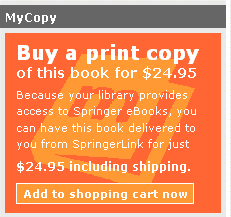
UBC Library subscribes to hundreds of electronic books from SpringerLink.
Prefer a print copy? Springer now offers a Print on Demand service for UBC faculty, staff and students wanting a personal copy from the library’s collection of Springer ebooks. You can have a black & white softcover copy delivered to your doorstep for $24.95 USD (includes shipping & handling) plus GST & PST.
Browse these collections for ebooks in your discipline
Books that can be delivered in print are indicated by the orange MyCopy logo. Simply click on Add to shopping cart now to begin the ordering process.
If you have any questions or comments, please contact UBC Librarians, Joy Kirchner or Aleteia Greenwood, or the publisher Springer.
Posted in Anesthesiology, Pharmacology & Therapeutics, Audiology & Speech Sciences, Biochemistry & Molecular Biology, Botany, Cellular & Physiological Sciences, Dentistry, Dermatology & Skin Science, Dietetics/Nutrition, Environmental Health, Family Practice, Fisheries, Food Science, Forestry, History of the Life Sciences, Land and Food Systems, Medical Genetics, Medicine, Microbiology & Immunology, Midwifery, Nursing, Obsterics & Gynaecology, Occupational Science & Occupational Therapy, Ophthalmology & Visual Sciences, Orthopaedic Surgery, Pathology & Laboratory Medicine, Pediatrics, Pharmaceutical Sciences, Population & Public Health, Psychiatry, Radiology, Surgery, Urologic Sciences | No Comments »
January 13th, 2009 by Sally Taylor | No Comments »
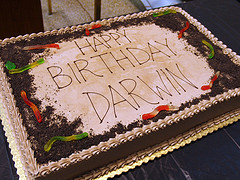
photo by Colin Purrington
It has been 150 years since the publication of Darwin’s On the Origin of Species, and 200 years since his birth (February 12). To celebrate, there will be a number of exciting events throughout the year.
Check out the Vancouver Evolution Festival web site for local events, including who’s speaking at the free public lecture series Darwin and You.
If you want to go further afield, the Darwin Day Celebration web site lists events in over 20 countries.
Publishers have also joined in with the following special publications commemorating Darwin.
Happy Birthday Darwin!
Posted in Biochemistry & Molecular Biology, Botany, Fisheries, Forestry, History of the Life Sciences, Land and Food Systems, Medical Genetics, Microbiology & Immunology | No Comments »
December 23rd, 2008 by Sally Taylor | No Comments »
As of January 1st 2009, we will be moving BIOSIS Previews from the OVIDSP platform to the Web of Knowledge interface.
You can try it now at: http://toby.library.ubc.ca/resources/infopage.cfm?id=551
You’ll be able to search BIOSIS Previews and Web of Science simultaneously, and there is no limit to the number of people who can access BIOSIS at one time.
Need help? See the Quick Reference Card (PDF) or ask Sally Taylor or Katherine Miller for help.
Happy searching!
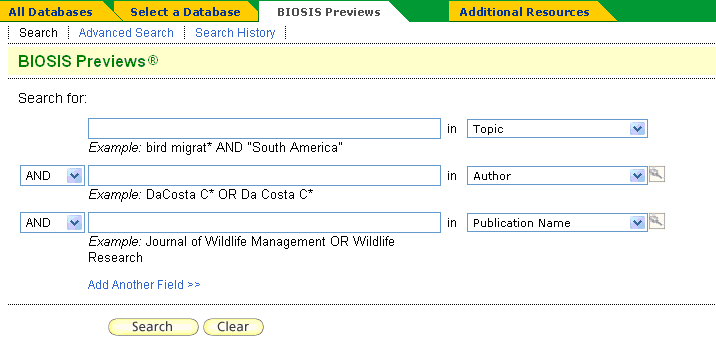
Posted in Anesthesiology, Pharmacology & Therapeutics, Biochemistry & Molecular Biology, Botany, Cellular & Physiological Sciences, Dentistry, Dietetics/Nutrition, Fisheries, Food Science, Forestry, Land and Food Systems, Medical Genetics, Medicine, Microbiology & Immunology, Pharmaceutical Sciences | No Comments »
December 9th, 2008 by Sally Taylor | No Comments »
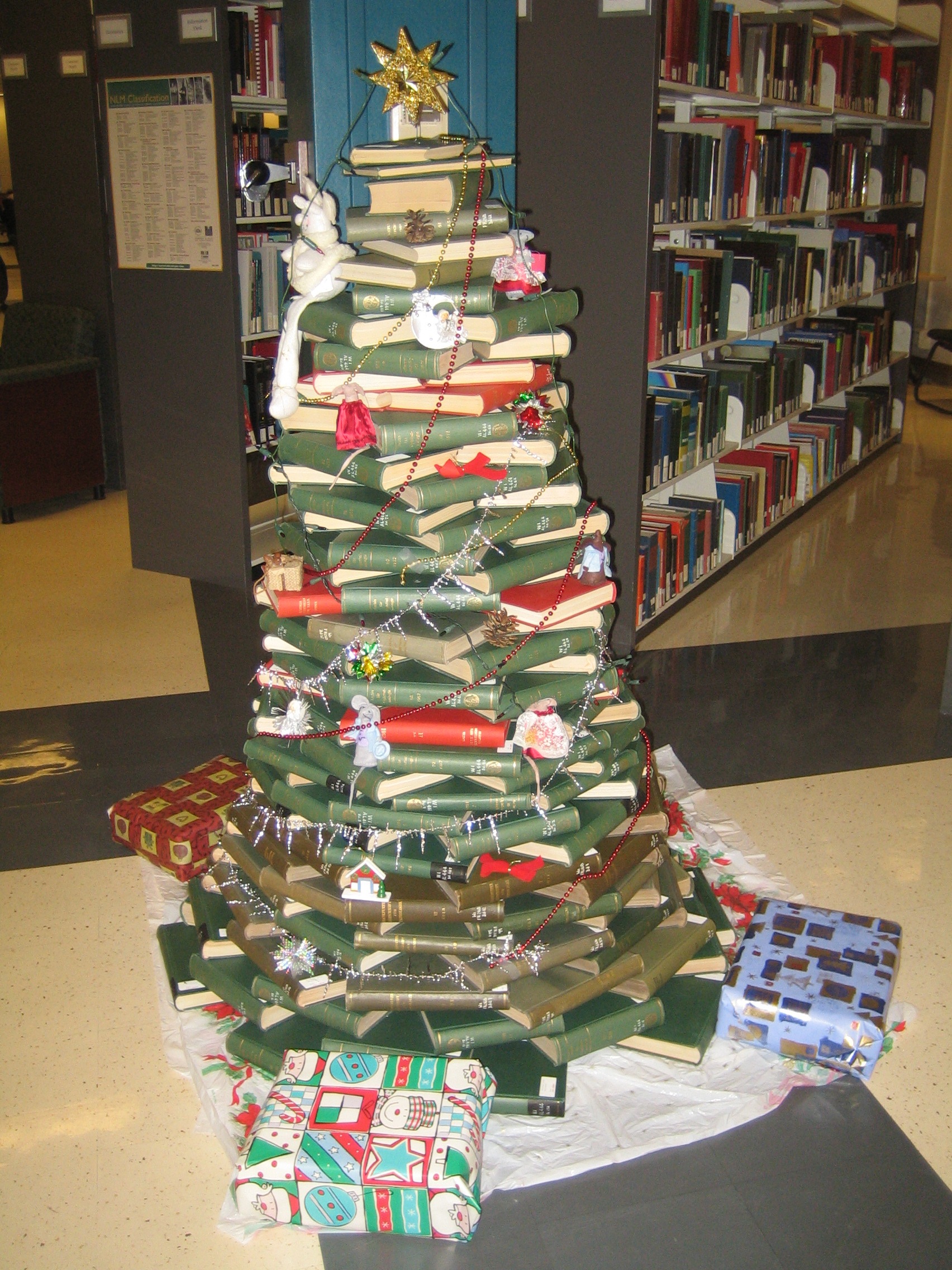
Woodward Library staff put the finishing touches on the Christmas tree made of green and red journals from the early 1900’s. Which journals did they use?
- Archiv für Ophthalmologie
- Frankfurter Zeitschrift für Pathologie
- Vestnik. Akademiia Meditsinskikh Nauk SSSR
Happy Holidays!
Posted in Botany, Forestry | No Comments »







